Nephrology is a medical specialty that mainly concerns the study of the kidneys, specifically dealing with kidney functioning (renal physiology), kidney disease (renal pathophysiology), the preservation of kidney health, and the treatment of kidney disease, starting from diet & medication to renal replacement therapy (dialysis and kidney transplantation). Nephrology also helps to study systemic health conditions that affect the kidneys functionality, like diabetes and autoimmune disease, renal osteodystrophy and hypertension.
What is the functionality of kidneys?
The kidneys are vital organs that maintain the fluid, electrolyte, and acid-base regulation that are altered by several disease conditions as well as drugs and toxins. Main functionality is to filter the blood of its waste products and excess water.
What are the diseases that kidneys are more prone to?
The diseases that come under the scope of nephrology include:-
What are the diseases that kidneys are more prone to?
If the kidneys suddenly stop working then this condition is known as acute kidney disease. But when it comes to chronic kidney disease, the kidney won’t work well for longer than 3 months.
The kidneys have several vital functions, including:
- Removing waste and excess fluid from the blood
- Maintaining your body’s electrolyte balance
- Releasing hormones with functions such as managing blood pressure
Amyloidosis
It is a disease characterized by an abnormal build-up of proteins (called amyloids) in various organs in the body.
Anemia Due to chronic kidney disease
Anemia is a common complication in chronic kidney disease and is related with a decreased quality of life.
Kidney issues due to diabetes & BP
Sometimes the kidney disease may be resulted from diabetes, it may be the number one cause of kidney failure; as per recent studies approximately a third of people with diabetes develop diabetic nephropathy because of other long-standing medical conditions that contribute to kidney disease. BP is a medical condition in which the arteries have persistently elevated blood pressure which can lead to damaged organs, as well as several illnesses, such as renal failure (kidney failure), aneurysm, heart failure, stroke, or heart attack.
Electrolyte disorders
It is the disorder that occurs due to imbalance of minerals in the body, potentially leading to damage to vital body systems, such as the muscles and brain.
Glomerulonephritis
It is a kind of kidney health issue that involves the glomeruli that supply blood flow to the small units in the kidneys that filter urine.
Kidney failure
It also called as renal failure, a medical condition in which the kidneys fail to adequately filter waste products from the blood.
Lupus nephritis
An inflammation of the kidney caused by systemic lupus erythematosus, a disease of the immune system.
Nephrotic syndrome
A syndrome in which the kidney filters insufficiently remove waste and excess fluids from the blood before sending them to the bladder as urine.
Pyelonephritis
A syndrome in which the kidney filters insufficiently remove waste and excess fluids from the blood before sending them to the bladder as urine.
Polycystic kidney disorder
A genetic disorder in which clusters of cysts develop primarily within the kidneys, leading to high blood pressure and kidney failure.
Autoimmune kidney disease
The immune system attacks part of the body thinking that it was an invader like virus. This can be a serious condition if the attack involves the kidneys.
Renal transplantation
Kidney transplantation is a surgery done in replacing a diseased kidney with a healthy kidney from a donor.
Recurrent Urinary tract infections
Recurrent UTIs happen because of bacterial reinfection or bacterial persistence.

